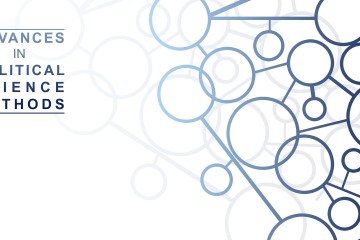
Data for Policy: Data Science and Big Data in the Public Sector
How can big data and data science help policy-making? This question has recently gained increasing attention. Both the European Commission and the White House have endorsed the use of data for evidence-based policy making. Still, a gap remains between theory and practice. In this blog post, I make a number of recommendations for systematic development paths. Research trends shaping Data for Policy ‘Data for policy’ as an academic field is still in its infancy. A typology of the field’s foci and research areas are summarised in the figure below. Besides the ‘data for policy’ community, there are two important research trends shaping the field: 1) computational social science; and 2) the emergence of politicised social bots. Computational social …

A new forecasting method for the Brexit referendum
Is it possible to have a more accurate prediction by asking people how confident they are that their preferred choice will win the day? As the Brexit referendum date approaches, the uncertainty regarding its outcome is increasing. And, so are concerns about the precision of the polls. The forecasts are, once again, suggesting a very close result. Ever since the general election of May 2015, criticism against pollsters has been rampant. They have been accused of complacency, herding, of making sampling errors, and even of deliberate manipulation of their results. The UK is hardly the only country where pollsters are swiftly losing their reputation. With the rise of online polls, proper sampling can be extremely difficult. Online polls are based …

How do we control what we measure using quantitative text analysis methods?
Dr Ben Lauderdale from the Department of Methodology at the London School of Economics and Political Science delivered a special masterclass on Tuesday 24th May 2016. Ben’s research focuses on the measurement of political preferences from survey, voting, network and text with a particular focus on using text data. This event presented the latest developments in ways social scientists can use text and provides an excellent opportunity to explore the promises but also the limitations of this quickly expanding research field. For further information on text analysis in social science see Felix Krawatzek and Andy Eggers Podcast Series.

What Big Data can teach political scientists
Big Data is now a buzzword in the political science field. Some might call this hype. Others see unlocking the power of “Big Data” as the most significant transformation in research this century. In the world of research, Big Data seems to be living up to its promise. And the results include a wave of new and inspiring projects. What is Big Data? Big data is not simply research that uses a large set of observations. It might be thought of as re-imagining large-n inquiries, dealing with hundreds of thousands, and, in some cases, even millions of observations. Big Data means giant N. But it is more than a question of quantity. In their well-known Ted Talk, Erez Lieberman …









